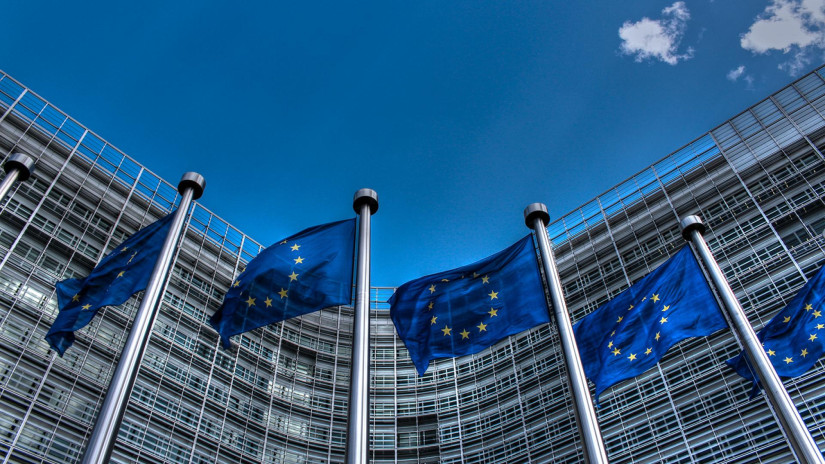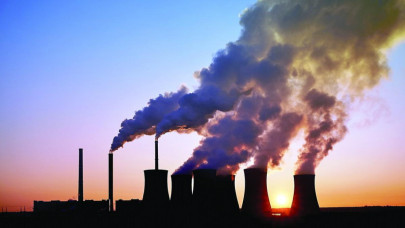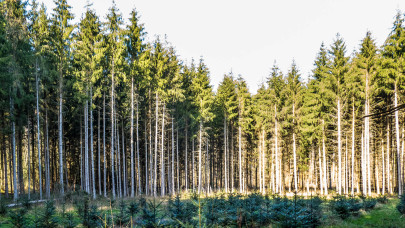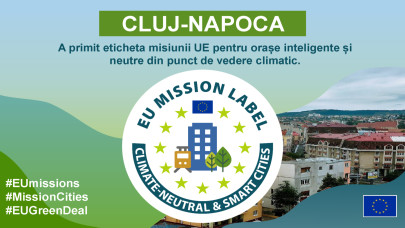LIFE projects contribute to reaching the European Green Deal's broad range of climate, energy and environmental goals, including the EU's aim to become climate-neutral by 2050. They support biodiversity and nature restoration, improve the quality of life of Europeans by reducing pollutants and greenhouse gas emissions, increase circularity in the economy and climate resilience, and accelerate the transition to clean energy across Europe.
”Climate and nature are intertwined. Our soils, oceans and forests are the biggest carbon sinks we have, and healthy nature can keep us cool on a warming planet. With the weather extremes our world is experiencing, more projects on climate adaptation and mitigation are paramount. When I see what LIFE projects have already achieved in the EU and participating countries and the impact they will have in the future, I am optimistic that we have the tools to bring real change on the ground”, says Wopke Hoekstra, Commissioner for Climate Action.
One of the biggest nature and biodiversity projects involves 13 EU Member States and other European countries tackling fishing bycatch in the North Atlantic, Baltic and Mediterranean waters. Led by The Netherlands, the project aims to minimise - and where possible eliminate - bycatch in the regions involved in line with the EU Biodiversity Strategy for 2030.
To promote a more circular economy and quality of life, one project in Bulgaria will promote sustainable consumption, prevention and separate collection of waste involving local authorities, businesses and citizens. The project aims to show how Bulgaria's traditional landfill dumping can be replaced by new ‘pay as you throw' door-to-door waste collection and recycling schemes.
”This year's LIFE projects are more ambitious than ever. As we continue to face the climate change, pollution and biodiversity loss crises, the LIFE Programme is living proof of our commitment to move from ambition to action and create a real difference for EU citizens with projects that will accelerate the green transition, improve our daily lives and preserve our natural ecosystems”, says Virginijus Sinkevičius, Commissioner for Environment, Oceans and Fisheries.
Supporting climate mitigation, a French project aims to demonstrate the technical and economic feasibility of an innovative and cost-efficient photovoltaic system before bringing it to the market. The technology consists of bifacial solar panels that are suspended above unexploited sites such as canals, basins and reservoirs. This technology will help generate more renewable energy, decrease greenhouse gas emissions and reduce competition for land use.
A new multi-country project will also support the clean energy transition in the HORECA (hotel, restaurant, catering) value chain in seven EU countries. The project aims to train over 500 workers and engage around 10.000 stakeholders in the accommodation and food service industry to save the equivalent energy of 390 million light bulbs a year.
29 nature and biodiversity projects, with a total budget close to €211 million (of which the EU will contribute around €140 million) will restore freshwater, marine and coastal ecosystems, and habitats; improve the conservation status of birds, insects, reptiles, amphibians, and mammals; enhance governance; and support the implementation and compliance with relevant EU legislation such as the Birds and Habitats Directives and the EU Biodiversity Strategy for 2030. By doing so, they will equally contribute to the EU's implementation of the Kunming/Montreal Global Biodiversity Agreement.
LIFE projects will mobilise over €298 million, of which the EU will provide over €94 million to contribute to the circular economy and improve the quality of life.
A total of 36 projects will focus on water use, electrical waste, chemicals, and air and noise pollution to help improve the quality of life for EU citizens and develop technologies to support the Circular Economy Action Plan.
Furthermore, five projects will enhance environmental governance and information by empowering consumers to live toxic-free lives and making sustainable food choices, and by supporting municipalities to adopt best practices in waste management and to implement the Green City Accord. The EU will contribute around €6 million for a total project budget of nearly €10 million.
In total, 34 projects worth about €110 million (in which the EU will provide around EUR 65 million) will contribute to climate change mitigation, climate change adaptation climate governance and information related to climate change impacts. They will boost the implementation of the European Climate Law and the EU Strategy on Adaptation to Climate Change Strategy by facilitating the shift towards a climate-neutral, sustainable and resilient European economy.
These projects address, among others, the reduction of greenhouse gas emissions; carbon removals in agricultural and forest lands; sustainable food systems; renewable energy and energy efficiency improvements; climate-friendly alternatives to fluorinated greenhouse gases; climate adaptation in urban and rural areas, as well as greater preparedness for extreme weather events such as heatwaves and floods.
67 projects with a total budget of more than €102 million (of which the EU provides around €97 million) will improve market and regulatory conditions in the EU for the clean energy transition, notably promoting and rolling out energy efficiency and small-scale renewable energy solutions.
These projects support the implementation of the energy efficiency and renewable energy policies set out in the REPowerEU plan and the Fit for 55 package, as well as the overarching Energy Union objectives.
Over its 31 years of existence, the LIFE Programme has co-financed more than 6.000 environmental and climate action projects across the EU and associated countries. The 171 projects announced today were selected from more than 751 applications, submitted under the LIFE 2022 call for proposals, published in May 2022.
The European Commission has increased funding for the LIFE Programme by almost 60% for the 2021 - 2027 period, bringing it to €5.43 billion. The grants financed under the LIFE Programme are managed by CINEA - the European Climate Infrastructure and Environment Executive Agency.












